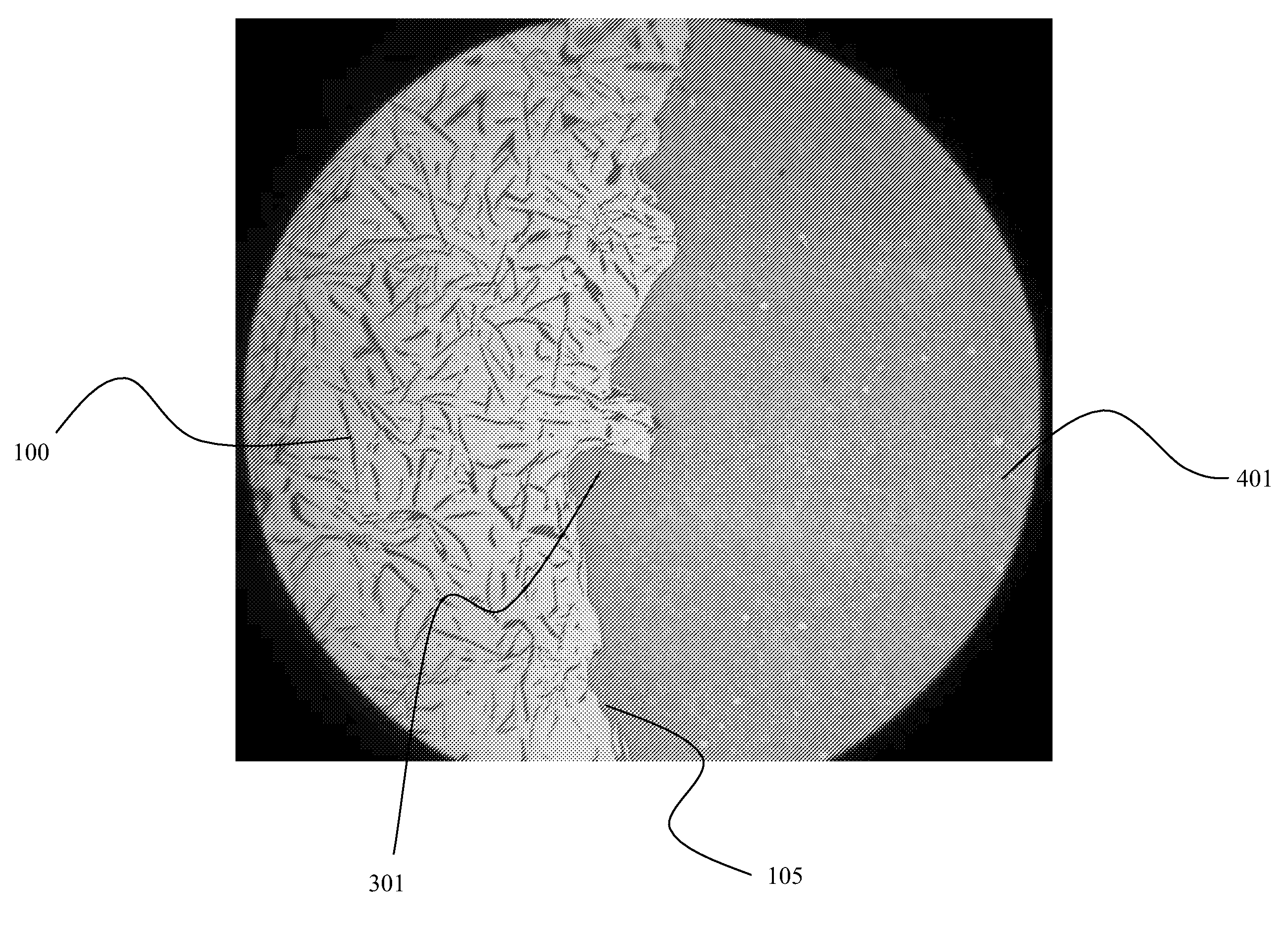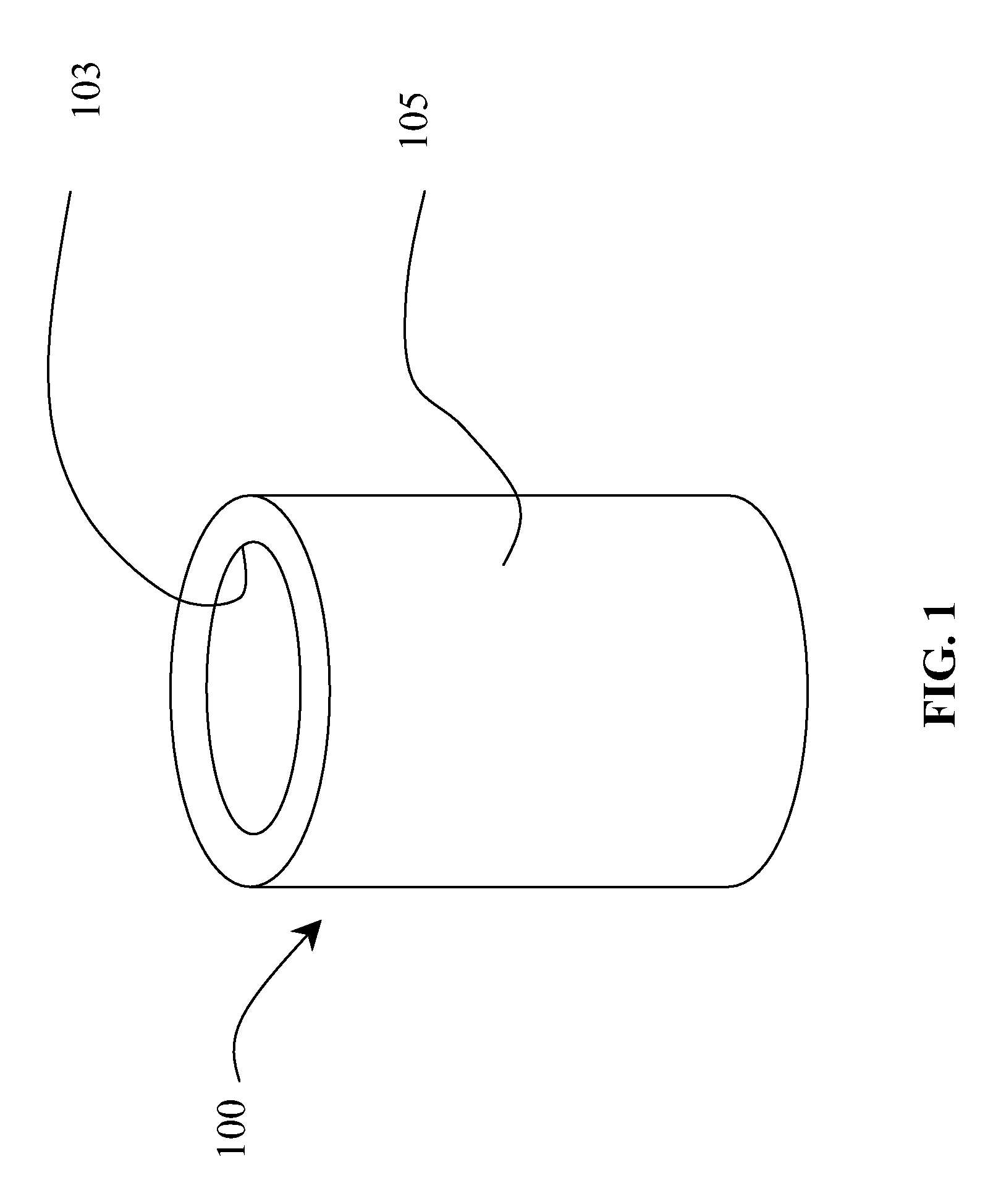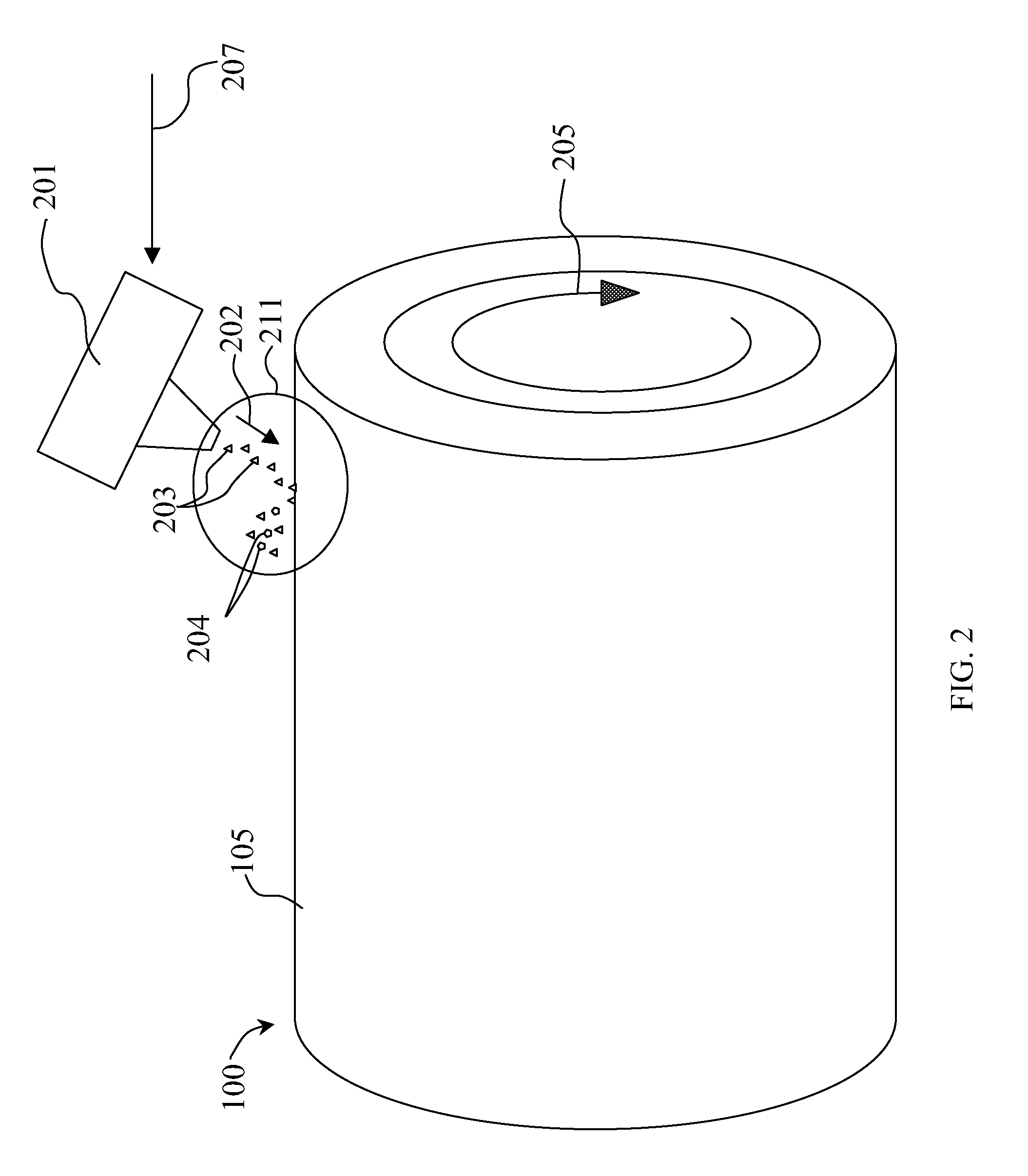Cylinder liners and methods for making cylinder liners
a technology of cylinder liners and cylinder blocks, which is applied in the direction of machines/engines, manufacturing tools, mechanical equipment, etc., can solve the problems of undesirable microstructures near the surface of the centrifugal casting, non-uniform microstructure of the iron from the outside to the inside of the casting, and the centrifugal casting technique does not have that advantage, etc., to achieve easy machining, easy machining of engine components, and removal of undesirable surface effects and/or surface defects
- Summary
- Abstract
- Description
- Claims
- Application Information
AI Technical Summary
Benefits of technology
Problems solved by technology
Method used
Image
Examples
example
[0049]A cylinder liner according to the present invention was prepared. A cast iron cylinder liner 4.0 inches long and having an outer diameter of 3.5 inches was machined to provide an outer diameter substantially free of surface effects. A grit size G12 was delivered at an angle of 70° with compressed air delivery of 90 psi through a 0.25″ nozzle located 9.0″ away from the surface of the liner. The cylinder liner was rotated at about 60 RPM as the grit was sprayed uniformly along the surface of the liner. The process was continued for about 30 seconds to cover the outer diameter surface of the liner. The cylinder liner 100 produced included cavities peppered along the surface of the outer diameter.
[0050]While the above has been described with respect to cylinder liners 100 and engine blocks 401, the process of the present invention may also find use with cast-in articles requiring strong mechanical bonds and substantially uniform composition and microstructure in the cast-in articl...
PUM
| Property | Measurement | Unit |
|---|---|---|
| size | aaaaa | aaaaa |
| size | aaaaa | aaaaa |
| contact angle | aaaaa | aaaaa |
Abstract
Description
Claims
Application Information
 Login to View More
Login to View More - R&D
- Intellectual Property
- Life Sciences
- Materials
- Tech Scout
- Unparalleled Data Quality
- Higher Quality Content
- 60% Fewer Hallucinations
Browse by: Latest US Patents, China's latest patents, Technical Efficacy Thesaurus, Application Domain, Technology Topic, Popular Technical Reports.
© 2025 PatSnap. All rights reserved.Legal|Privacy policy|Modern Slavery Act Transparency Statement|Sitemap|About US| Contact US: help@patsnap.com



